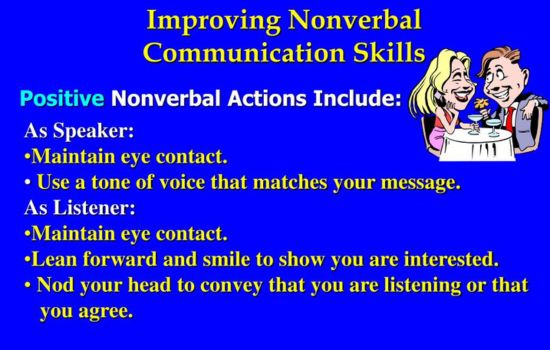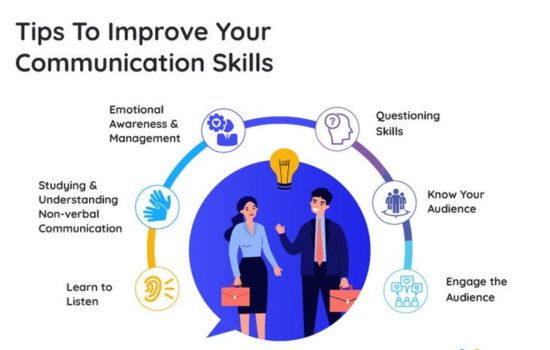The foundation of human relationships is communication. Success and fulfillment in personal and professional relationships as well as daily encounters depend on efficient communication. It is a skill though that many find difficult. The good news is that with commitment and practice communication skills can be refined and enhanced. Here are five tried and true strategies to improve your ability to communicate.
Table of Contents
Active Listening:
Listening is just as important as speaking in two way communication. Active listening entails paying close attention to what the other person is saying, comprehending what they were saying and giving a considered response. Develop your listening skills by doing things like keeping eye contact acknowledging others with a nod and summarizing what was said to make sure you understood. Refrain from interjecting during the other person speech and fight the impulse to prepare your rejoinder. You will make deeper connections and learn a lot by being truly present during conversations.
Practice Empathy:
By enabling you to establish deeper connections with others developing empathy improves your communication abilities. When conversing imagine yourself in the other person’s position and take into account their viewpoint. Even if you disagree with them respect their feelings and affirm their experiences. Empathy fosters a welcoming and inclusive atmosphere that fosters the growth of meaningful conversation.
Improve Nonverbal Communication Skills:
Body language tone of voice and facial expressions are examples of nonverbal clues that are important in communication. Keep an eye on your nonverbal cues to make sure they support the message you want to convey. To project sincerity and confidence, keep your body language open create eye contact and modify your tone. Likewise pay close attention to other people’s nonverbal clues since they frequently offer insightful background information and a window into their emotions and ideas.

Develop Clarity and Conciseness:
Effective communication is essential to conveying your message clearly and succinctly. Make an effort to communicate clearly and concisely. Stay away from jargon and needless complications. Prepare your ideas in advance so that you can speak clearly and concisely. Consider the comprehension level of your audience and modify your language and delivery accordingly. Be brief without compromising meaning as concise communication is more likely to be understood and connected to by others.
Seek Feedback and Learn from Experience:
Communication abilities can be improved with practice and feedback. Seek out helpful criticism from mentors, colleagues, or communication experts to pinpoint your areas of improvement. Keep an eye out for any reoccurring themes or recommendations, and try to address them methodically. Furthermore, consider your experiences with communication—both the easy and the difficult ones and draw conclusions from them. Think back on the encounters that went well and those that could have been done better then use these insights in the future. Accept that improving your communication skills will take time and embrace the idea that learning is a lifelong process.
Improving communication skills:
Gaining better communication abilities is crucial for career and personal development.
Active Listening:
Listen intently to others without interjecting. Use vocal clues such as affirmations and nodding to demonstrate your engagement.

Clarification:
If there is anything you don’t understand, don’t be afraid to ask for it. It demonstrates your sincere curiosity and openness to understanding.
Empathy:
More meaningful interactions might result from showing empathy for their feelings and experiences.
Body Language:
Observe both your own and other people’s body language. Keep your eyes on the other person, use open-ended motions, and pay attention to their nonverbal indications.
Engage in Reflective Communication:
To make sure you understand and to show that you are actively listening, reflect on what you have heard. Additionally, it can help to clear up any confusion.
Conciseness:
Communicate clearly and succinctly. Steer clear of superfluous jargon and too complicated language, especially when addressing an audience that may not be familiar with the subject.
In conclusion:
Good communication is an important skill in both the personal and professional spheres. You may greatly improve your communication abilities by engaging in active listening developing empathy, mastering nonverbal communication, becoming clear and succinct and asking for feedback. Recall that effective communication involves more than just information transfer it also entails building relationships understanding and cooperation. You can develop your communication skills and improve your relationships and experiences in all facets of life with commitment and perseverance.

